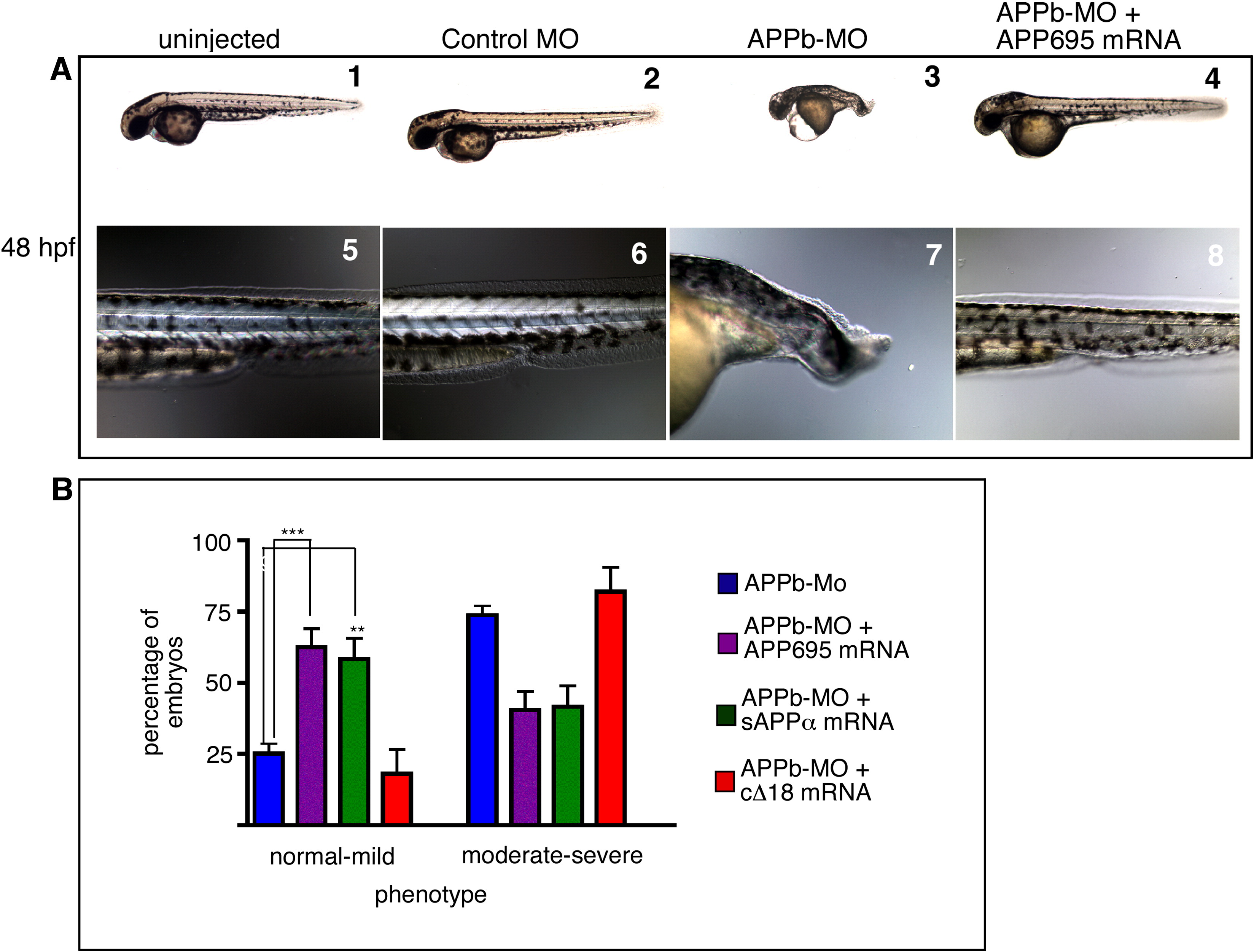Fig. 4 Ectopic expression of human APP695 rescues the APPb morphant phenotype.( A) Morphology of live embryos at 48 hpf. Lateral views, anterior to the left and dorsal up. Embryos were uninjected (1), control-MO-injected (2), APPb-MO-injected (3), or co-injected with APPb-MO and APP695 mRNA (4). Note that co-injection with APP695 mRNA rescued the developmental defects. A higher magnification of the tail region showed an elongated ‘stack of pennies’ notochord in uninjected (5) and control-MO-injected (6) embryos, compared to an undulating notochord and a curly tail in APPb-MO-injected embryos (7). Embryos co-injected with APPb-MO and APP695 mRNA (8) revert to an elongated tail and ‘stack of pennies’ notochord that is similar to controls. (B) Quantification of embryo rescue through co-injection of mRNA. Injection of 10 ng of APPb-MO causes the defective phenotype (shortened axis, curly tail) in 75% of embryos (blue bars). Co-injection with mRNA encoding full-length APP695 (purple bars) results in an increase in the normal-to-mild phenotypes, compared to APPb-MO-injected embryos (blue bars) that have increased moderate-to-severe phenotypes, indicating rescue of the curly tail morphant phenotype with APP695 mRNA. ∗∗∗ is p = 0.0002, p < 0.05 in two-tailed unpaired t-test; Gaussian distribution; N of experiments = 14; N of embryos ∼ 300. Similarly, embryos co-injected with APPb-MO with sAPPα ectodomain (green bars) showed an increase in normal-to-mild phenotypes in comparison to APPb-MO-injected embryos. ∗∗p = 0.0037 for sAPPα with Mann–Whitney test N of experiments = 8. Total N of embryos analyzed = 143. In contrast, cΔ18 mRNA co-injected embryos (red bars) had a similar number of normal-to-mild phenotypes as APPb-MO-injected embryos, indicating cΔ18 mRNA does not rescue the morphant phenotype. p > 0.05, Mann–Whitney test for cΔ18. Error bars represent ± standard error of mean (S.E.M).
Reprinted from Developmental Biology, 335(1), Joshi, P., Liang, J.O., Dimonte, K., Sullivan, J., and Pimplikar, S.W., Amyloid precursor protein is required for convergent-extension movements during Zebrafish development, 1-11, Copyright (2009) with permission from Elsevier. Full text @ Dev. Biol.

